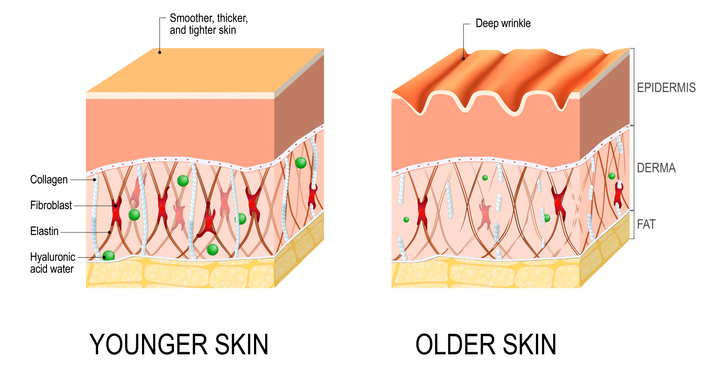If you’ve been on the internet recently, you’ve probably seen celebrities and social media influencers recommend collagen for skincare benefits. Collagen is responsible for the appearance of our skin, and the benefits of the protein include keeping skin hydrated and wrinkle-free. Collagen supplements are a multimillion-dollar industry, and they’re currently marketed as a one-size-fits-all solution to everything from clearing acne to preventing skin from aging. Since the trend became popular a few months ago, UPMC has noticed an influx of dermatology patients inquiring about the supplements, which come in the form of powder and pills.
We asked Dr. Suzan Obagi, director of the UPMC Cosmetic Surgery & Skin Health Center, about the popular protein powder, which she personally does not consume.
What is collagen?
Collagen is a protein naturally produced by our body, known to affect the appearance of our skin and hair. It’s in the middle of our three layers of skin located right above the fat. So, when you pinch your skin, what you are feeling is the collagen layer.
Is collagen supplementation really helping your skin glow?
Probably not. Even though you’re consuming collagen, it gets broken down and rebuilt in your body the same way as any other food. If you’re eating a well-balanced diet, you’re already getting all of the collagen that you need. Nutritious foods, such as fruits, vegetables, fish and meats, are packed with collagen. Collagen supplementation might help those with nutritional deficiencies or malabsorption issues who may not be benefitting maximally from the food they ingest.
Should I continue taking collagen supplements?
They aren’t going to harm you, but if you’re trying to improve your skin, your money can be much better spent. Most importantly, you should be wearing a broad-spectrum sunscreen on your face every single day because ultraviolet rays quickly break down the collagen you already have and send a signal to the skin to produce less collagen. Another great investment is a Vitamin A derivative, such as retinol or retinaldehyde, which can be purchased over-the-counter and helps to improve fine lines and wrinkles by building collagen in the skin.








